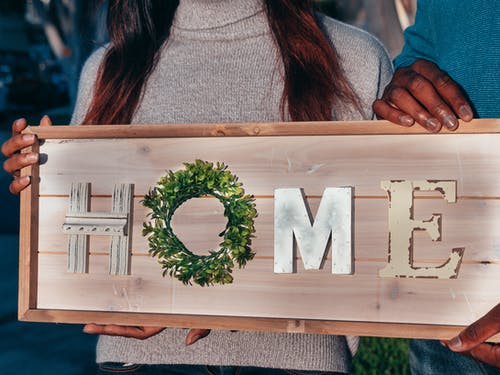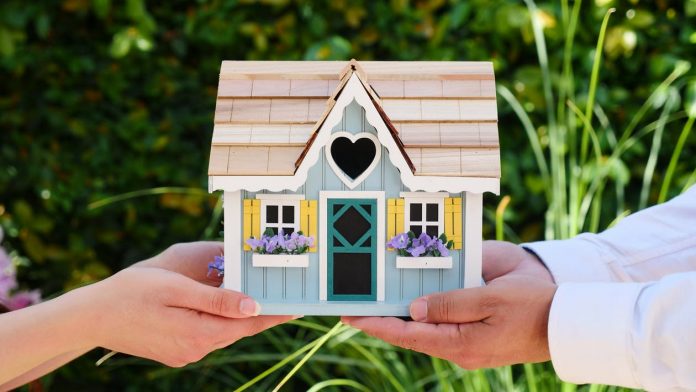Studying the terms and knowing how the house buying procedures run, may help ease the process. Below are steps to learn how to purchase a home. Be aware of credit scores. Credit scores range from 300 to 850 and the higher the credit score, the better rate will be attainable. If a person is unsure of credit scores, get a free copy to see what the lenders will see.
Figure out how much is affordable and how much will be needed to borrow for buying a home. Normally, home buyers place 10-20% of the appraised value of the home down on the house. Determine the ratio lenders are using to decide qualification of a loan. Apply and get approved for a loan for the actual amount of money affordable to pay. Do not go over the amount that is affordable. This will only lead to trouble when buying a home.
Home buyers should apply to various lenders within a two-week period to avoid damages to credit reports. It is important to apply with a trusted lender. Have this step done before contacting a real estate agent. Investigate first-time buyer programs which often requires less of a down payment. Go house hunting and view as many houses as possible to get an idea of what type of houses are available on the market to buy.
Don’t Rush Into Buying a Home
Do not buy the first house you like. Look online through multiple listing services. Find a reputable real estate agent and express what type of house is wanted and price range needed, as well as the location desired.
Once a person finds a house, the next step is to make an offer and include earnest money, which shows commitment in buying the house. After signing the papers of an offer, escrow is official. This means, there is an obligation to buy the house unless the final mortgage approval is denied. A home inspection should be performed and passed before finalizing the purchase. There should be an agreement and the issues that need fixed should be without any charge to the buyer.
Close the escrow in a title office by signing papers on the property and mortgage payments. These papers should include the deed and title proving ownership of the house and nobody else has claim to it. Keep and store these papers forever.
Performing these steps will make sure the future buyers is on the right path into home ownership. Remember to study and do not rush into anything. Purchasing a home is a huge commitment and should not be taken lightly. It is important to know exactly what is expected before starting the process.
Questions When Buying a House – and Answers

There are thousands of questions when buying a house, especially for those who have never done it before. For the first time home purchase, a few house buying tips might help.
Given a realistic assessment of what can be afforded, some research to determine the best mortgage, and a good solicitor to do the conveyancing, all should be well on the legal and financial fronts. But it’s vital not to get so wrapped up in such matters that choosing the property takes second place.
Here then is a first time home buyers’ guide for those who have the legal and financial issues in hand, and are now chiefly concerned with buying the right house.
Questions When Buying a House: a Home Buying Checklist
Those contemplating a first time home purchase should take all the advice they can get. Of all the many questions when buying a house, here are some which should be in mind from the start.
- Where to buy.
- How many bedrooms and bathrooms are needed? How much storage space?
- How big a kitchen is required? Must it include an eating area?
- Is a garden necessary?
- What car parking facilities are required?
- Are there stairs?
- What condition of property is acceptable?
Tips for First Time Home Buyers
How should each of the issues in this home buying checklist be addressed? Those who have bought before can call on previous experience, but here are some house buying tips for the first time home purchase.
- Location. Define an area within which the hunt will take place, and don’t look outside it. Proximity to work is likely to be the main factor. Individual properties should be evaluated according to neighbourhood atmosphere, proximity to shops, schools, public transport and other services.
- Bedrooms, bathrooms, storage space. Sounds obvious, but mistakes are made. Are there children or might there be in future? Can they share rooms? Might a grandparent move in? Are there enough wardrobes, and how much clutter must be accommodated?
- Kitchen. Those who mean to do a lot of cooking should reject any property with only a small kitchen. And those who like to eat in the kitchen should be sure that there is space for a table.
- Garden. It’s nice to have a garden, but it won’t look after itself. Even so, no one who really wants one should readily compromise.
- Car parking. There may be room for a garage even if there isn’t one already. But would planning permission be granted?
- Stairs. Are there any, and if so, how many and how steep? Remember that stairs can be a problem for old people and for small children.
- Condition. For those prepared to do work on a run-down property, it is essential to determine what will be necessary, and how much it will cost. More important still is structural soundness, which should be evaluated by a property surveyor, either in a homebuyer’s report or in a full building survey.
Homebuyer’s Report or Building Survey?
For a first time home purchase, the budget is usually severely stretched, but some corners should not be cut. The most important of all house buying tips is this: except in the case of a new building constructed to rigorous standards, never take structural soundness on trust.
For buildings of less than 75 years old, a homebuyer’s report is usually the best option. This will be much more thorough than the lender’s survey, the purpose of which is only to determine that the loan can be recouped in case of repossession. It should reveal any serious problems, and for a property worth between £100,000 and £200,000 it might cost around £350.
For older buildings, the more expensive but more thorough building survey is advisable. Such properties often have hidden problems which might not otherwise be revealed. At the extreme, subsidence may make a house impossible to sell again. For a property valued from £100,000 to £200,000, a full building survey is likely to cost around £560.
It is worth saying again. The best of all tips for first time home buyers is always to check the structural soundness of any potential purchase.










